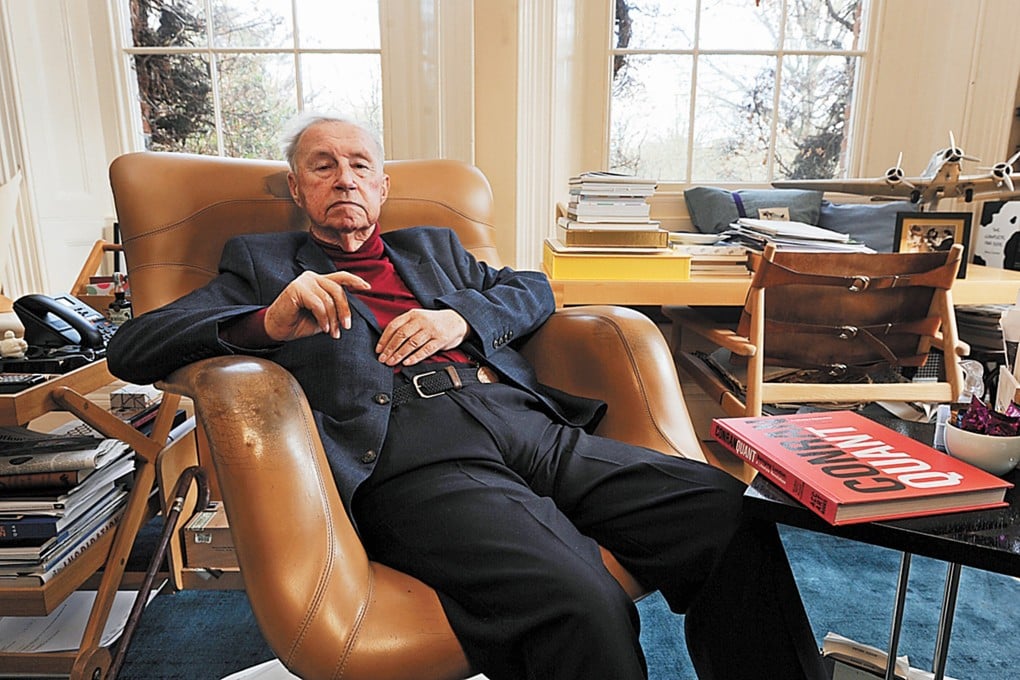British designer Terence Conran: ‘I felt intensely depressed by how awful people’s homes were’
- The man who introduced a nation to the duvet, garlic press and chicken brick is not afraid of anything – except retirement
- The Habitat founder recently received a lifetime achievement award from the Hong Kong Design Centre

It is quite a task interviewing Sir Terence Conran in his London penthouse.
It’s not that he is, in his own words, “in a rather slothful state at the moment”, slumped in a leather-and-walnut Eames lounge chair. Nor is it that he punctuates the conversation with polite requests to sip on his whisky and soda (“It gets me going”) or light up one of his trademark Havanas (“Do you mind if I go on smoking my luxurious Cuban cigar?”). The problem is that, as fascinating as the subject is, his home is such a feast for the eyes that it is almost impossible to keep my gaze on him.
He keeps trying to meet my eye as I find myself gawping at the furnishings of the man who spent half of the 20th century revolutionising how some of us live, shop and eat. There are the sculptures, the perfectly placed vase of tulips on the coffee table, the Danish Hans J. Wegner Wishbone bentwood chair on which I am sitting (£713/HK$7,280 at The Conran Shop) and the Eames design classic (£6,700, also at Conran’s home emporium) on which the man himself is berthed.
That is before you even get to the majestic views of the River Thames from the panoramic windows of his flat in the Richard Rogers-designed Montevetro building, in Battersea, south London.

In December, the designer, restaurateur and bon viveur won the DFA Lifetime Achievement Award from the Hong Kong Design Centre, in recognition of an extraordinary career. His son Sebastian flew to the city to collect it on his behalf because of the chronic back pain that has been plaguing Conran for 40 years; the reason he didn’t get up to greet me when I arrived.
Conran is touched to receive the honour, but “I regret to say that I feel a bit depressed about a lifetime achievement award, because it almost implies you’ve finished. And I haven’t,” he says with a chuckle.
